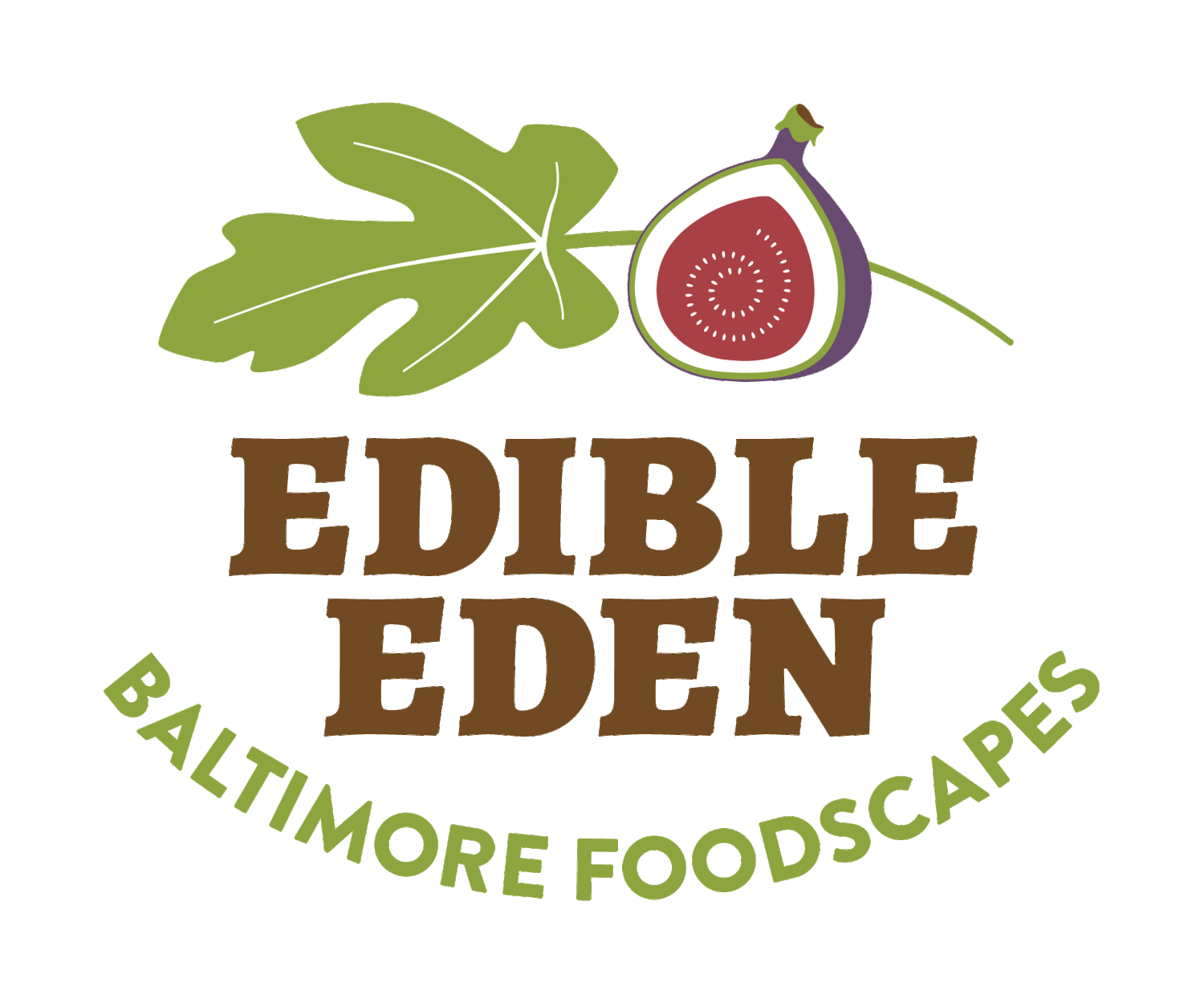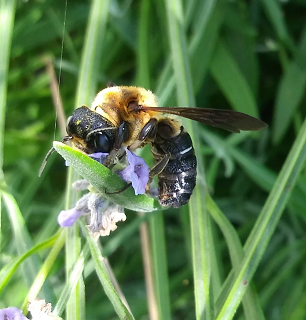Edible Eden takes pride in being an ethical business, but did you know that we couldn’t provide our services without taking advantage of free labor?
Don’t worry, we’re not breaking any employment laws, and our unpaid workers are all volunteers. Today we are kicking off a series of articles written to give credit to this seemingly altruistic workforce... by introducing you to your friendly, neighborhood bees!
© Photo by Grace Fellner
It is true that all of Edible Eden’s gardens (and gardens everywhere!) would be desolate and barren without the work of these fastidious pollinators. While they are not the only pollinators in town, bees are comprised of a vast family of species who are essential to natural ecosystems as well as cultivated crops. Every time you pick a blueberry or a tomato, thank a bee!
An image of bees, beekeepers, and honey from the tomb of Pabasa in Luxor, Egypt.
Human civilizations have been aware of the importance of bees since long before science parsed out why and how. Humans have been harvesting wild honey for thousands of years, but the earliest known records of intentional beekeeping date back to Ancient Egyptian society where bees were worshipped and believed to fall to the Earth as tears of the sun god, Ra. The depicted beekeeping methods are so advanced that it’s thought that they were developed long before the details were recorded in hieroglyphs.
While they may no longer be worshipped as deities, bees are as important as ever to modern society. In addition to producing 163 million pounds of honey in the USA annually, honeybees are vital to the agricultural industry as crop pollinators. According to the FDA, bee pollination accounts for about $15 billion in added crop value.
Honeybees aren’t the only superstars in town; in fact, they’re not even from around here! The United States has been a home to over 4,000 native bee species long before honeybees were introduced by European settlers in the 1600’s. This is a surprisingly little known fact, as many “Save the Bees” campaigns focus on honeybees, who are declining due to intensive farming practices that leave them weak to parasites and disease.
Habitat loss and pesticides are also contributing to the decline of both honeybees and our native bees. Competing with honeybees for limited resources has been an immense strain on native bee populations. Losing our native bees would be devastating to our local ecosystems and complex food webs, and they need our support to survive!
Fortunately, we are here to teach you how to give back to these essential frontline workers. Stay tuned for upcoming articles on how to attract and support bees and live among them safely, the benefits and types of native bees, and how planting specific native plants can help bees to successfully breed and raise their next generations.
Native bees visiting a sunflower for nectar, pollen, and naptime.
© Photo by Grace Fellner



